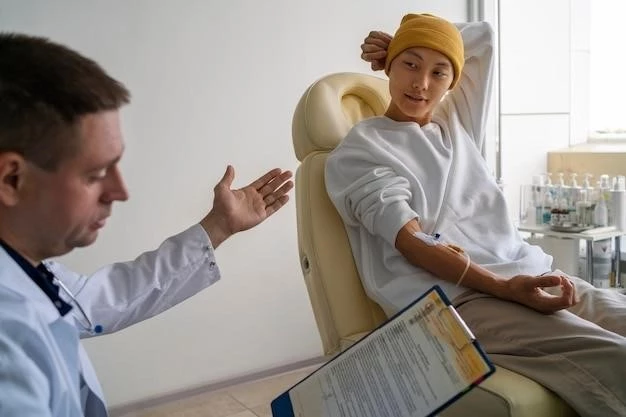Introduction to Albright-Turner-Morgani Syndrome
An in-depth exploration of Albright-Turner-Morgani Syndrome reveals a complex interplay of genetic and environmental factors that contribute to its onset and progression. Understanding the root causes is crucial in developing effective treatment strategies.

Causes of Albright-Turner-Morgani Syndrome
Albright-Turner-Morgani Syndrome is primarily caused by genetic mutations affecting the GNAS gene, leading to dysregulation of hormone signaling pathways. In most cases, the syndrome is inherited in an autosomal dominant pattern. Rarely, it can also occur sporadically due to de novo mutations. The specific mechanisms that result in the characteristic features of the syndrome are still being studied.
Furthermore, environmental factors such as prenatal conditions or exposures may also play a role in the development of Albright-Turner-Morgani Syndrome, though their exact contribution is not yet fully understood. Research continues to investigate the intricate interplay between genetic predisposition and environmental influences in the manifestation of this complex syndrome.
Symptoms and Diagnosis of Albright-Turner-Morgani Syndrome
Albright-Turner-Morgani Syndrome presents with a range of symptoms that can vary in severity and combination among affected individuals. Common manifestations include skeletal abnormalities, such as short stature, malformed bones, and skeletal deformities. Additionally, individuals may experience endocrine issues, including hormonal imbalances that affect growth, puberty, and metabolism.
Diagnosing Albright-Turner-Morgani Syndrome involves a comprehensive evaluation of clinical symptoms, genetic testing to identify mutations in the GNAS gene, and imaging studies to assess skeletal abnormalities. Endocrine function tests may also be conducted to determine hormonal imbalances. A multidisciplinary approach involving specialists in genetics, endocrinology, orthopedics, and other relevant fields is crucial for an accurate diagnosis and appropriate management of the syndrome.
Treatment Options for Albright-Turner-Morgani Syndrome
Managing Albright-Turner-Morgani Syndrome involves a multidisciplinary approach aimed at addressing the diverse symptoms and complications associated with this complex condition. Treatment strategies may include hormone replacement therapy to manage endocrine imbalances, growth hormone therapy to support growth and development, and orthopedic interventions to address skeletal abnormalities.
Physical therapy and assistive devices may be utilized to improve mobility and function in individuals with musculoskeletal issues. Regular monitoring by healthcare providers is essential to assess treatment effectiveness, adjust therapies as needed, and address any emerging concerns promptly. Genetic counseling can also provide valuable support and guidance to individuals and families affected by Albright-Turner-Morgani Syndrome.
Prognosis and Life Expectancy with Albright-Turner-Morgani Syndrome
The prognosis for individuals with Albright-Turner-Morgani Syndrome varies depending on the severity of symptoms, the presence of complications, and the effectiveness of treatment interventions. Early diagnosis and comprehensive management can help improve outcomes and quality of life for affected individuals.
While Albright-Turner-Morgani Syndrome is a chronic condition that requires ongoing medical care, advancements in treatment approaches have contributed to better outcomes in recent years. With timely and appropriate interventions, individuals with the syndrome can lead fulfilling lives and participate in various activities with proper support and resources.
It is essential for healthcare providers to closely monitor individuals with Albright-Turner-Morgani Syndrome, address any emerging complications promptly, and adjust treatment plans as needed to optimize long-term health and well-being. Collaboration between healthcare professionals, individuals with the syndrome, and their families is crucial in achieving the best possible prognosis and enhancing the overall life expectancy of those affected.
Genetic Factors in Albright-Turner-Morgani Syndrome
Albright-Turner-Morgani Syndrome is primarily associated with genetic mutations in the GNAS gene located on chromosome 20. These mutations disrupt the normal function of the gene, leading to dysregulation of hormone signaling pathways and influencing various aspects of growth, development, and metabolism.
The GNAS gene encodes the alpha subunit of the stimulatory G protein, which plays a critical role in signal transduction in cells. Mutations in this gene can result in altered hormone secretion patterns, affecting multiple endocrine organs and leading to the diverse clinical manifestations observed in Albright-Turner-Morgani Syndrome.
Understanding the specific genetic alterations associated with the syndrome is essential for accurate diagnosis, personalized treatment approaches, and ongoing research efforts to unravel the complex interactions between genetic factors and clinical phenotypes in Albright-Turner-Morgani Syndrome.
Management of Complications in Albright-Turner-Morgani Syndrome
Individuals with Albright-Turner-Morgani Syndrome may experience a range of complications affecting various organ systems, necessitating a comprehensive management approach tailored to their specific needs. Endocrine abnormalities, musculoskeletal issues, and metabolic disturbances are among the common complications that require diligent monitoring and prompt intervention.
Management strategies may involve a combination of medical therapies, lifestyle modifications, and surgical interventions aimed at addressing the complications associated with the syndrome. Regular follow-up visits with healthcare providers specialized in endocrinology, orthopedics, and other relevant fields are essential to detect and manage complications early, thereby minimizing their impact on the individual’s health and well-being.
Furthermore, educating individuals with Albright-Turner-Morgani Syndrome and their families about potential complications, symptom recognition, and proactive management strategies is crucial in promoting optimal health outcomes and enhancing the overall quality of life for those living with this complex syndrome.
Research and Advances in Albright-Turner-Morgani Syndrome
Ongoing research into Albright-Turner-Morgani Syndrome continues to deepen our understanding of the underlying genetic mechanisms, clinical manifestations, and treatment modalities for this rare disorder. Advances in genetic testing technologies have facilitated more precise diagnosis and personalized management strategies.
Researchers are exploring potential targeted therapies to address the specific molecular pathways affected by GNAS gene mutations, with the aim of improving outcomes and quality of life for individuals with the syndrome. Collaborative efforts between clinicians, scientists, and advocacy groups have led to enhanced awareness, early detection, and multidisciplinary care for affected individuals.
As research into Albright-Turner-Morgani Syndrome progresses, there is growing optimism regarding the development of innovative therapeutic approaches and supportive interventions that can positively impact the lives of those living with this complex condition. Continued scientific inquiry and clinical trials hold promise for further advancements in the management and care of individuals with Albright-Turner-Morgani Syndrome.
Support and Resources for Individuals with Albright-Turner-Morgani Syndrome
Individuals diagnosed with Albright-Turner-Morgani Syndrome and their families benefit from access to a variety of support services and resources designed to assist them in navigating the challenges associated with the condition. Support groups, patient advocacy organizations, and online forums offer opportunities for individuals to connect with others facing similar experiences, share information, and find emotional support.
Healthcare providers specializing in genetic disorders, endocrinology, and orthopedics play a crucial role in providing personalized care and guidance tailored to the unique needs of individuals with Albright-Turner-Morgani Syndrome. Genetic counselors can offer valuable information about the genetic aspects of the condition, including inheritance patterns and family planning considerations.
Moreover, educational resources, rehabilitative services, and assistive technologies can help individuals with Albright-Turner-Morgani Syndrome enhance their quality of life, promote independence, and manage the physical and emotional aspects of the condition effectively. By leveraging these support systems and resources, individuals with Albright-Turner-Morgani Syndrome can navigate their healthcare journey with confidence and receive comprehensive care that addresses their specific needs.
